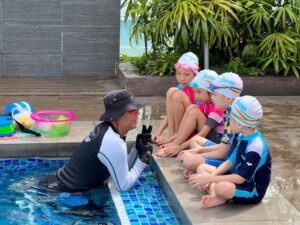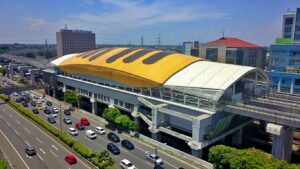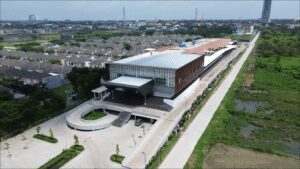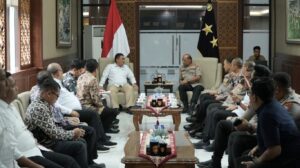Filipino Seafarers ‘not only beneficiaries, but also stewards’ of the new Magna Carta law
– The Magna Carta for Filipino Seafarers and its Implementing Rules and Regulations (IRR) address long-standing issues in the maritime industry, ensuring alignment with international standards like the Maritime Labour Convention (MLC) 2006.
– The law combats unfair labor practices, including ambulance chasing, while guaranteeing fair employment conditions, access to quality maritime education, and clear dispute resolution mechanisms.
– The law enhances coordination among MARINA, CHED, TESDA, the Department of Migrant Workers (DMW), and the Department of Health to uphold global maritime standards and support future seafarers.
MANILA – The passage of the Magna Carta for Filipino
Seafarers, along with its recently-signed Implementing Rules and Regulations
(IRR), marks a major milestone in addressing long-standing issues in the
maritime industry.
During a forum on the ‘Magna Carta Law and IRR’ organized by
the Association of Licensed Manning Agencies (ALMA) Maritime Group, Congressman
Ron Salo recognized the crucial role maritime stakeholders played in advocating
for the legislation. He stressed that the law was designed to protect the
rights and welfare of seafarers while aligning with international standards
such as the Maritime Labour Convention (MLC) 2006.
“This law was enacted to address decades of challenges
faced by the men and women who risk their lives at sea to keep global trade
moving,” Salo said. He highlighted concerns such as ambulance chasing and
the failure to meet international maritime standards—issues that have
threatened the job security of Filipino seafarers.
Salo, often referred to as the Father of the Magna Carta for
Filipino Seafarers, previously chaired the Committee on Overseas Workers
Affairs and was instrumental in pushing for the law in the House of
Representatives.
The Magna Carta includes strict measures against ambulance
chasing, a long-standing issue unique to the Philippines that has drawn
criticism from global shipowners and impacted the employability of Filipino
seafarers since the early 2000s.
The new law ensures that seafarers are given fair and humane
employment conditions, protects them from exploitative practices, and
guarantees access to quality, affordable maritime education and training. It
also establishes clear grievance mechanisms and a streamlined dispute
resolution process to safeguard their financial and emotional well-being.
The establishment of seafarer hubs offering legal aid,
skills training, and welfare programs is another cornerstone of the law, funded
by the Overseas Workers Welfare Administration (OWWA).
“This is not a distant dream—it is a vision we can realize
with the Magna Carta as our compass,” the speaker added, urging stakeholders to
unite in implementing the law effectively.
The Magna Carta also strengthens inter-agency collaboration
among MARINA, CHED, TESDA, the Department of Migrant Workers (DMW), and even
the Department of Health to ensure compliance with international standards and
to equip future seafarers for an evolving industry.
“If there’s a disagreement about the disability grading or
fitness for work, the [implementing rules and regulations] ensures that the third-party
doctor can provide a binding determination resolving disputes efficiently and
fairly. And I am very pleased to inform you that we have discussed this
lengthily already with the Secretary of the Department of Health,” noting the active
participation of the ALMA Maritime Group and its chair Atty. Iris Baguilat.
As the nation positions itself as a leader in maritime
innovation, the speaker called on seafarers to uphold the highest standards of
professionalism, stating, Together, we will not just weather the storms; we
will sail towards a brighter horizon.”







